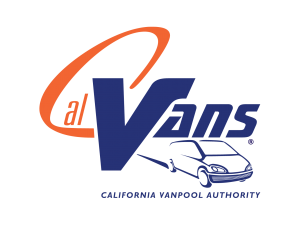Agricultural Worker Vanpool Pilot Project provides clean transportation, reduces air pollution in disadvantaged San Joaquin Valley communities
For immediate release
Contacts
Categories
PARLIER – A new pilot project providing farmworkers with clean transportation to agricultural job sites was celebrated today by state and local officials gathered for a press event in the Fresno County city of Parlier. The Agricultural Worker Vanpool Pilot project is funded by a $6 million grant from the California Air Resources Board through California Climate Investments, a statewide program that puts billions of Cap-and-Trade dollars to work reducing greenhouse gas emissions, strengthening the economy, and improving public health and the environment — particularly in disadvantaged communities.
CARB awarded the grant to the California Vanpool Authority (CalVans) to implement the project over the next two years. CalVans will deploy 154 new 15-passenger hybrid vans that provide clean transportation to agricultural job sites in the San Joaquin Valley and other low-income agricultural areas of California. The vans, retrofitted with add-on hybrid technology that reduces fuel consumption by 25 percent, meet a basic transportation need of agricultural workers, and result inimmediate emission reductions benefits within disadvantaged communities. In addition to providing safe and reliable transportation and improving air quality, the project also promotes increased acceptance and understanding of clean, advanced technology vehicles, and provides data to support and guide future clean transportation investments.
This project expands CalVans San Joaquin Valley fleet by 60 percent (or 77 vans), for a total of 188 vans serving agricultural workers in eight counties. Plans call for the remaining 77 hybrid vans funded under the grant to serve other low‑income and disadvantaged agricultural areas in the state, such as the Coachella Valley and Salinas Valley. All vans are set to deploy by early 2019.
“Barriers to accessing clean transportation options, such as access and awareness, are magnified for low‑income residents,” said Assistant Executive Officer Veronica Eady, who is responsible for overseeing CARB’s environmental justice activities. “The vanpool project helps break down those barriers by providing workers access to vans that result in immediate air pollution reduction benefits in disadvantaged communities, while promoting increased understanding and acceptance of advanced-technology vehicles.”
Senate Bill 350 required CARB to explore the barriers to and opportunities for increasing access to zero-emission and near zero-emission transportation and mobility options for low-income residents, including those in disadvantaged communities. The vanpool project is an example of one such opportunity to improve air quality for communities most impacted by pollution. Increasing access to clean transportation for all Californians is crucial to achieving the state’s air quality, public health and climate goals.


